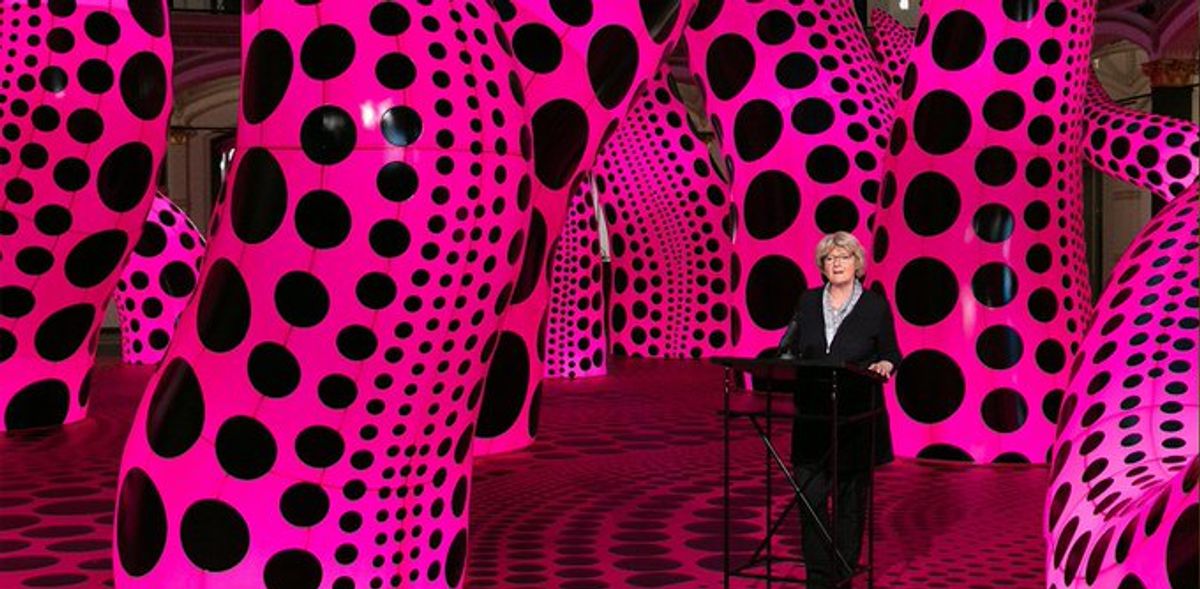An “emergency brake” law passed by the German parliament this week to counteract the third wave of the coronavirus pandemic has forced museums across the country to close. Among those forced to close from tomorrow are Berlin’s state museums and the Martin Gropius Bau, a day after it opened a major Yayoi Kusama retrospective.
With the new rules, parliament has wrested control over pandemic restrictions from the 16 states in an attempt to end a confusing patchwork of measures that varied from one region to another. Museums in Dusseldorf, Dresden, Leipzig, Chemnitz and Halle announced closures just weeks after they were permitted to reopen.
Under the new rules, museums must close to visitors in any region where the average number of new coronavirus cases per day over the past seven days exceeds 100 per 100,000 residents for three consecutive days. With a rate above 150, non-essential shops must also close. With a rate of between 100 and 150, non-essential shops including art galleries can open to visitors and customers who book time-slots and can show a negative coronavirus test from the past 24 hours.
“We are watching the incidence rate closely,” says Maike Cruse, the director of Gallery Weekend, which runs from 30 April to 2 May. On 22 April, the rate was at 147, just low enough for galleries to be allowed to open physically.
“If it’s still under 150 on Wednesday, then we can go ahead -- the suspense will be there till the last minute,” Cruse says.
Gallery Weekend is in any case prepared for a digital event given that many international visitors will not be able to attend in person, Cruse says. Each gallery exhibition has a website and there will be Zoom tours and live events for international collectors, museum directors and the general public.
The Kusama retrospective, traversing the artist’s 70-year career, was officially opened yesterday by Culture Minister Monika Grütters. The first contingent of tickets had already sold out. The exhibition, which includes a new Infinity Room and a vast installation of pink polka-dotted tentacles in the atrium of the museum, is scheduled to run until 15 August.
The German government had allowed museums to reopen from 8 March after four months of forced closure. But even before the new law was passed, many museums in high-incidence regions – including the Städel Museum in Frankfurt and the Hamburg Kunsthalle – had already been forced to close again since then as cases rose.


